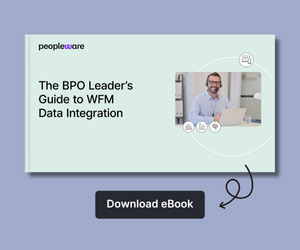Is Africa maturing into the offshore call centre destination of choice? Peter Massey believes the continent may have some way to go yet, although its potential is huge.
The amazing views of Africa seen on high definition TV for the BBC’s Planet Earth series make one wish for warm climes, wild animals and lots of time off to do the continent justice.
What image does Africa conjure up for you? Game reserves and endless savannah? Exploited poverty from The Constant Gardener? The magnificent tombs of the Pharaohs? Clicking fingers from Live 8? The smile of Nelson Mandela?
Trade with Africa has in many ways never been more topical, yet it isn’t necessarily the first place we think of for offshore or nearshore contact centres and back offices. India still dominates both the press and the actual numbers of jobs that have moved offshore.
In fact, the press about Africa and Eastern Europe is way ahead of what’s going on in practice. But that does not mean they are not valid destinations for offshoring.
Yet compare Africa with India. The same colonial legacy of languages and education system. A much better time zone similar to the UK.
A strange economic bubble during recent decades followed by growth. Above all, a fight for education and the need to grow the economies out of poverty amidst natural resources and political turmoil.
If we can buy our Tesco flowers from Kenya, why not have our Asda calls in Cape Town? Both are true already.
One of the things that has struck me in recent trips, to both African and Eastern European countries, is how hard they and their people strive for success. Having known lack of freedom and lack of money, they really try. They really want our business.
And they have choices to make about the business they will take from our shores. The dreaded spam calls selling telecoms and mobiles have given India a bad name.
My daughter will kill the call before anyone speaks; she can tell by the dialler delay that it’s another spam call from India. We get one or two per day despite being on the telephone preference service (TPS / do not call) list.
Now the ugly clients who commission these spam calls want to go elsewhere as the rapidly consolidating Indian market refuses them. Don’t do it.
It’s less talked about in the UK, but our French colleagues have used North African outsourcers in a number of countries along the Med. Dell, for example, has a successful centre in Casablanca, as well as in Bratislava in Eastern Europe.
US outsourcer Stream and French outsourcer Teleperformance (1500 seats) are in Tunisia, as well as having operations around Western and Eastern Europe. Romania, Senegal, Mauritius and Egypt also figure for French speakers.
And all of you who have read The Life of Pi will know they even speak French in India – at least in Pondicherry.
Many other English-speaking countries in Africa have one or two outsourcers trying to break through into offshoring; Kenya, Ghana, Mozambique, you name it…
Egypt, for example, is making a big play off the back of a recent Datamonitor report. But I think we have to look further at the real factors beyond the PR and the headline costs: client size, client experience and risk.
Key Advice for Both African Offshore Businesses and Their Potential Clients
- Remember to look beneath the PR. Secondary countries are not as yet providing huge capacity for the offshoring of UK voice and business processes.
- All these secondary countries need you to be a large scale, experienced client. If you don’t fall within these criteria, you are at high risk at this stage of their development.
- Offshoring is a very important trade for Africa as it develops the countries’ economies sustainably and gives the countries’ newly educated strivers a channel through which to develop real international commercial skills.
- African countries are missing a trick in not tapping in to the UK’s Live 8 consumer desire to help. They should think about this rather than focusing on the supposition that all Brits hate Indian call centres ringing them up.
The Factors That Really Make a Difference
It is not about price, except maybe for outsourcers. And even then it’s not the full picture. Hence Indian outsourcer 24/7’s entry in to Northern Ireland with Gem.
Okay, budget matters. If you move out of India to South Africa, for example, you have to up your budget. If you move from the UK to South Africa, then that’s not the issue.
The real issue isn’t the country, it’s the client. If you are a global organisation, used to outsourcing and being offshore, with professionals to spare, then you can take your own talent and processes to a less developed country and make a great job of it.
To make that talent worth investing you’re probably going to need at least 200, if not 400, seats to go to that one place. These conditions are only true for a few organisations.
Risk is different from just quality. For many financial services organisations, it’s about de-risking. Risk is about boardroom acceptability: do I dent my career by suggesting this location?
Risk may be worth taking if you want, politically, to be in that local market to sell as well. Can you get the people mix you want, try it and exit, considering labour laws? Is there a support infrastructure as well as acceptable technology support and costs?
This dearth of talent makes the international outsourcers even more important to the development of local business. This is very evident in the growth of US businesses going to Central America and the Caribbean, because the outsourcers are taking them there.
Equally, the major outsourcers are moving in to the right places in Eastern Europe to be able to support multiple European languages, not just to nearshore German business.
So what about South Africa – that peculiarly western European piece of the African continent? Sure, we’ve seen big announcements repeated time and again in the last few months about Carphone Warehouse and IBM. The numbers are small compared to India.
But it is significant to the local economy and to the hopes of the local governments in making a difference to local skills and chances in life. There will be more to come for sure.
Here is one of the factors about offshoring that is seldom considered. Bob Geldof rattles on about trade with Africa. Contact centres and BPO are trade.
Maybe we should take a view on our role in helping trade with Africa and elsewhere? After all, operating a purely onshore model is getting rarer and rarer, even in some government departments that want their outsourcers to be globally competitive.
Written by: Peter Massey, Managing Director of Budd and Co-Founder of the LimeBridge Alliance
For more information and advice on outsourcing and offshoring, read these articles next:
- Get Your Outsourcing Partnerships Off to the Best Start
- An Outsourcer’s Guide to Developing a PR Strategy
- What Does Voice and Non-Voice Process Mean in BPO?
Author: Peter Massey
Reviewed by: Robyn Coppell
Published On: 24th Mar 2006 - Last modified: 29th Aug 2025
Read more about - Call Centre Management, Business Process Outsourcing (BPO), Management Strategies, Peter Massey







































